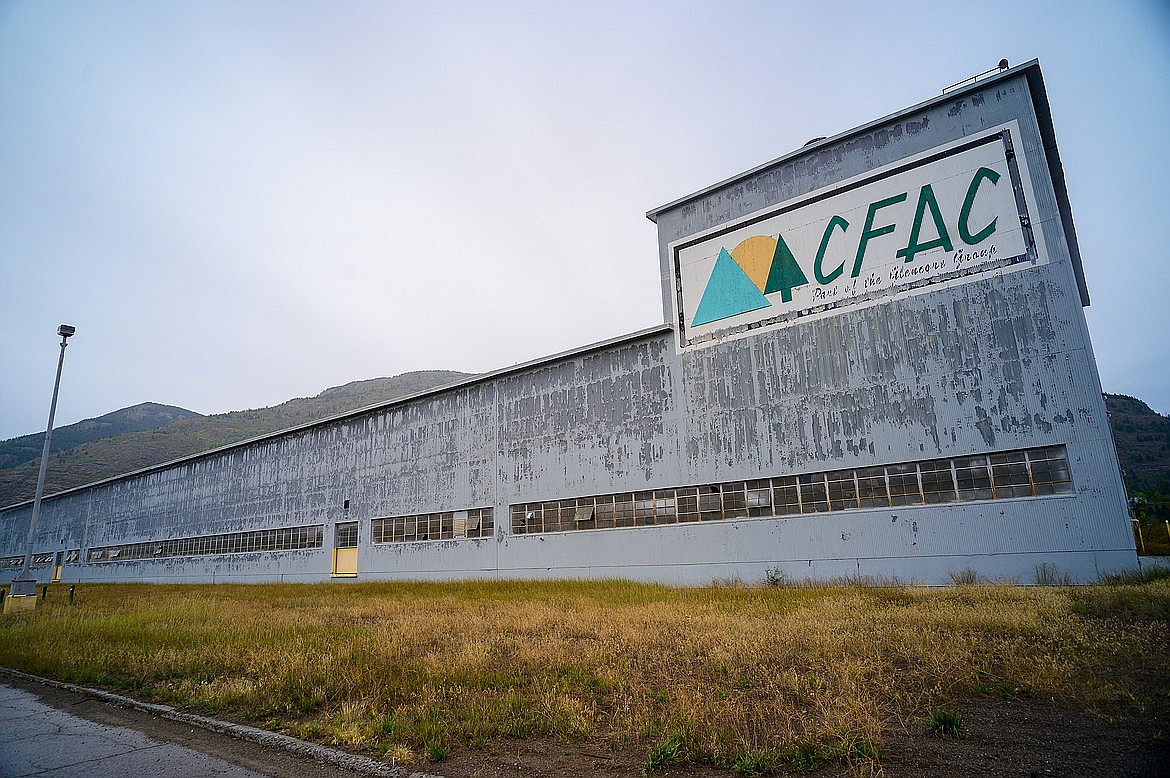Group wants hazardous waste landfill for CFAC cleanup
The Coalition for the Clean CFAC will urge the Environmental Protection Agency to consider a different cleanup plan for the old aluminum plant.
The EPA's proposed action calls for creating a slurry wall around two leaking dumps, while consolidating contaminated soils at the former Columbia Falls Aluminum Co. site.
The two dumps, the old wet scrubber sludge pond and the west landfill, have been leaking cyanide and fluoride into the groundwater since at the least the 1990s. Both are common pollutants at aluminum plants.
The slurry wall plan has an estimated price tag of roughly $57 million and is endorsed by CFAC’s parent company Glencore.
But the remedial investigation of the site also looked at several other alternatives and one of those was to consolidate all of the toxic waste at the site into one large hazardous waste landfill.
That plan came with an estimated price tag of roughly $165.6 million. According to studies, the net result would create a new landfill that would be about 43 acres in size. It would also require monitoring and maintenance.
This alternative keeps the waste “high and dry” and away from groundwater, argued Mayre Flowers of the Coalition during an interview last week. She said most of the Coalition’s recommendations are nothing new, they’re simply part of the voluminous studies on the best way to clean up the Superfund site. The Coalition made its choice after doing what she termed a “deep dive” into the cleanup documents with Karmen King and other experts from Skeo, an EPA-funded firm that helps residents decipher complex Superfund documents.
“Most of what we recommend comes straight out of the plan,” she said.
Flowers claimed the slurry wall technology is unproven with the local soils, which are glacier till, a sandy, gravelly soil that’s the remnants of glaciers that once covered the area long ago.
She also claimed another plant, the defunct Kaiser-Mead plant near Spokane, Washington, also considered a slurry wall, but rejected it based on concerns about the effectiveness.
Atlantic Richfield Co. brought up a similar complaint in its arguments against the slurry wall. But ARCO, unlike the Coalition, has skin in the game. As a former owner of the CFAC plant, it’s charged with paying for about 35% of the cost of cleanup.
Glencore, however, claims the slurry wall will work, and it will do tests on its effectiveness and depth before proceeding, under EPA guidance. Slurry walls have been used to contain waste at a multitude of landfills across the U.S., the company’s experts note.
The company has also expressed frustration in the delay in releasing the Record of Decision on the site’s cleanup and the fact that the EPA is funding technical help for the Coalition more than a year after the public comment on the Proposed Action was closed.
The company also notes that Flowers, and fellow Coalition member Shirley Folkwein, had eight years to attend numerous CFAC meetings and other events, but didn’t do so until recently.
They also claim the EPA is, in essence, complicit in delaying the record of decision.
“What may have started as a well-intentioned attempt to accommodate requests to better understand the technical basis for the [proposed plan] has morphed into an effort by a handful of activists from outside Columbia Falls to use EPA contractors [Skeo] to attempt to undermine the EPA’s own proposed plan and restart the site analysis and decision making process to try to achieve their desired remedial outcome,” argued Cheryl Driscoll of Glencore in an Aug. 14 letter to KC Becker, Region 8 administrator for the EPA. “This is an unproductive use of government resources and any associated EPA expenditures are inconsistent with the National Contingency Plan and therefore not recoverable by the EPA.”
The company also notes that the research and plans that were done to date were all overseen and approved by the EPA and the state Department of Environmental Quality.
As for Coalition’s support of an on-site hazardous waste landfill, Flowers noted it would need sideboards to guarantee that if it’s built, it would only accept waste from the CFAC site, not other sites.
EPA project manager Matt Dorrington said he had not heard from the Coalition that they were proposing endorsing the hazardous waste landfill alternative.
But he also noted the formal public comment period on the proposed action ended a year ago, on Aug. 31, 2023.
Another key aspect of the record of decision is the sale of the land. Glencore has agreed to sell more than 2,000 acres of the CFAC property to developer Columbia Falls Mick Ruis. But that sale is contingent on the release of the record of decision.
The Coalition plans on holding more public meetings with King Sept. 18 and 19, and Oct. 9 and 10 in Columbia Falls.


